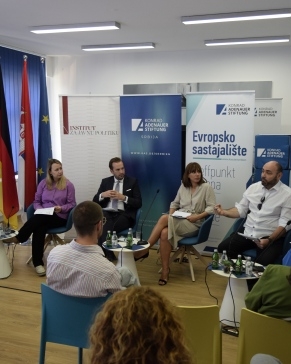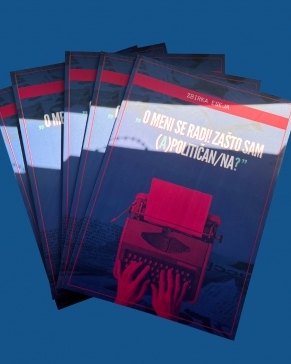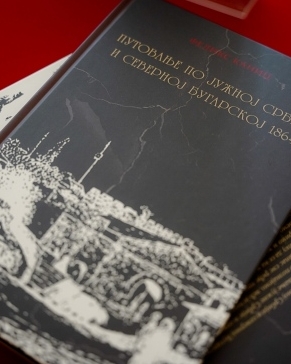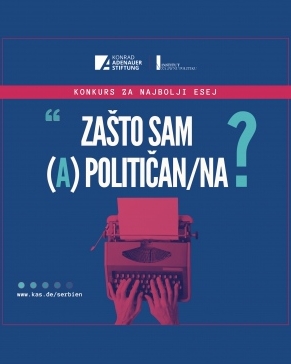
Nostalgia that hinders our adjustment to modern systems of liberal democracy represents one of our migrations. Migrations into the past that never happened and to the future from which every generation of emigrants tries to run away from in last few hundred years. The vision of devastation of this time is confronted with challenges of personal freedom and responsibility. The alternatives are the iron hand of the nation, religion, or any deranged person whose early childhood was Freudian mistake, and whose family and social context are the dark sides of his own intimate character.
The obsessions of our contemporary politics are either Russian strategic periphery, or affiliation to integrated European space. The idea of national metamorphosis into cloned clown of those geopolitical idiocy for which the price is being paid by run-down Ukraine, is being led by Russian agents with support of quislings who dominate the media and social networks. The virtual Serbian Russian-Orthodox propaganda is political variant of child pornography, intended for the weakest, for those to whom the future belongs mostly. At the same time, European integration is now in the domain of experts and administration, and it now lacks panache, passion and energy. The political evil is more concrete and seductive, as 20th century experience remind us. The rational alternative to Novorossiya is continuance of painful and uncertain transition. Novorossiya represents final and permanent asylum of our refuge and wanderings. Gulag or Auschwitz, with gas heating and food allowance.
The nostalgia for 20th century usually overlooks values that were repressed by traumas of violence and crime. Those values were founded upon the merit of the individual and duration of institutions, regardless of its collectivistic system and spirit. The Yugoslavian integral idea and the idea of brotherhood and unity shared certain similarities, and they had more merit than any political concept accomplished after the disintegration of Yugoslavia. Brotherhood and unity was invented and then destroyed by the same party nomenclature. It was a low-minded platitude. However, it had provided framework of peace and order to Yugoslavian culture, which’s universality, and sometimes world fame, was also founded upon oversight of real or imagined collectivist differences. Although some creators of that culture, writers, artists or scientists, have sunk in mental collapse of disintegration, that legacy is valuable and long lasting. Sometimes it seems that that legacy belongs to them at least.
Socialist self-management was rendered futile above all because of reform obstruction and bureaucratization of economic subjects in the 1970’s. Both Constitution of 1974 and Memorandum of 1986 represented the concepts that were rendered null and void by fall of communism in Eastern Europe in 1989 and China’s entrance into world market; those events augured the era of globalization. It is not a coincidence that anti-Titoist hysteria was accompanied by anti-Kardeljist hysteria. What were the alternatives of tycoonization, autarchy and hopeless poverty? Was the worker ownership instead of oligarch ownership the solution? Was the solution also the entrance of middle class into market relations, the class that is the economic, political and moral loser of ongoing transition? Middle class is also predominantly consumer rather then producer. Is it possible to redirect the transition, in case that there is re-evaluation of controversial privatizations, and when judiciary and financial institutions became independent and adapt themselves to the market and rule of law?
We share historical experience of a modern European integration with our neighbours. The accelerated European integration of former Yugoslavian space would condense the haze of memories turning pale, and politically undefined nostalgia into energy of change, and perhaps new culture in this vacuum of culture. Perhaps it is important assumption that the energy of change, which we had introduced at the beginning of 21st century, was nostalgic remembrance of golden yesteryears. And that time, the only that reaches our memory, was the time of Yugoslavian union. Yugoslavian space was the broadest area of our political, economical and cultural potentials. And it goes beyond those borders that are drawn in bad times and erased in good times.




